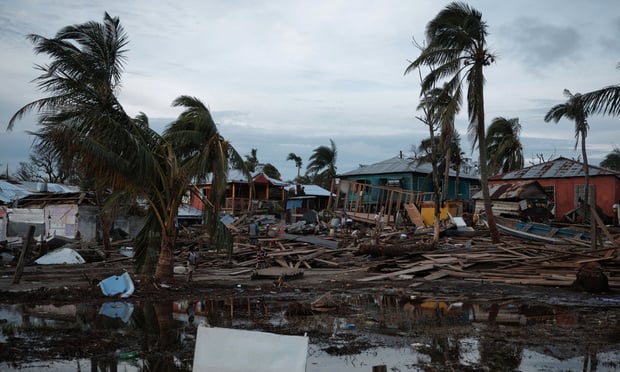 Destroyed houses in the coastal neighborhood of El Muelle after Hurricane Iota made landfall in Bilwi, Nicaragua, on Friday, Nov. 20, 2020. Hurricane Iota slammed into Central America as the Atlantic's strongest storm of the year, bringing catastrophic winds and torrential rain. (Photo: Carlos Herrera/Bloomberg)
Destroyed houses in the coastal neighborhood of El Muelle after Hurricane Iota made landfall in Bilwi, Nicaragua, on Friday, Nov. 20, 2020. Hurricane Iota slammed into Central America as the Atlantic's strongest storm of the year, bringing catastrophic winds and torrential rain. (Photo: Carlos Herrera/Bloomberg)
The 2020 Atlantic hurricane season broke all kinds of records this year, but the latest economic damage estimates don't quite match the level of activity.
Recommended For You
Want to continue reading?
Become a Free PropertyCasualty360 Digital Reader
Your access to unlimited PropertyCasualty360 content isn’t changing.
Once you are an ALM digital member, you’ll receive:
- Breaking insurance news and analysis, on-site and via our newsletters and custom alerts
- Weekly Insurance Speak podcast featuring exclusive interviews with industry leaders
- Educational webcasts, white papers, and ebooks from industry thought leaders
- Critical converage of the employee benefits and financial advisory markets on our other ALM sites, BenefitsPRO and ThinkAdvisor
Already have an account? Sign In Now
© Touchpoint Markets, All Rights Reserved. Request academic re-use from www.copyright.com. All other uses, submit a request to [email protected]. For more inforrmation visit Asset & Logo Licensing.







